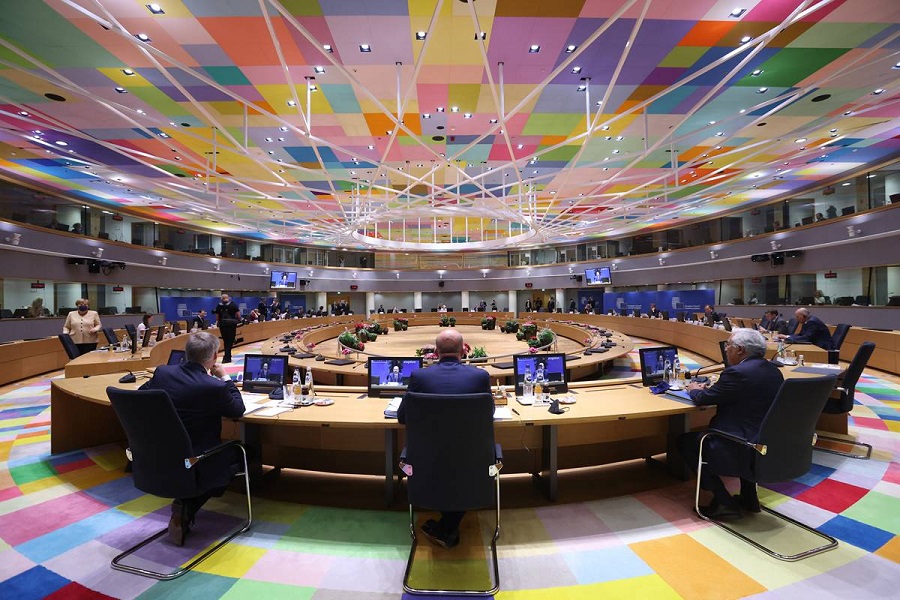EU Council Agrees on Rules to Reduce Emissions from Heavy Duty Trucks by 90% by 2040

The European Council announced on Monday that it has reached an agreement on new rules aimed at strengthening regulations on emissions standards for new heavy-duty vehicles such as trucks, buses and trailers, including a requirement for a 90% emissions reduction by 2040, and also aimed at encouraging an increasing share of zero emission vehicles in the heavy duty fleet.
The agreement will form the basis for the Council’s negotiating position with the EU Parliament on the revision of CO2 emissions for heavy duty vehicles proposed by the European Commission earlier this year. Trucks and buses account for over 6% of total greenhouse gas (GHG) emissions in the EU, and more than 25% of GHG emissions from road transport.
When it initially proposed the rules, which also included requirements emissions reductions for new heavy duty vehicles of 45% from 2030 and 65% from 2035, the Commission said that the new targets would align with several EU objectives, including the European Green Deal, the EU strategy to achieve a climate neutral economy by 2050, as well as from REPowerEU, the EU plan to end its reliance on Russian fossil fuels. The Commission said that the new standards would result in a decrease in demand of roughly 2 billion barrels of imported oil between 2031 and 2050.
While the Council’s agreed position maintained the Commission’s primary emission reduction targets, it also proposed several changes to the new rules, including extending the target for a requirement for zero-emission urban buses from 2030, which some member states argued was an unrealistic timeline, to 2035, while introducing an interim 85% reduction target for 2030.
The Council also included a requirement for the Commission to assess in a 2027 study the potential role of introducing a carbon correction factor (CCF) to enable the inclusion of renewable fuels and carbon neutral e-fuels in the fleet transition mix, which some member states argued would effectively lower the level of emissions reductions, while others said would ease the transition.
Teresa Ribera Rodríguez, Spanish Minister for the ecological transition and the demographic challenge, said:
“With today’s agreement we have reaffirmed our commitment to reach our ambitious climate targets. Lorries, buses and coaches are an important part of road transportation, affecting the daily lives of millions of citizens. Citizens deserve to live in a greener and healthier environment, and we are now a step closer towards this objective. At the same time, we are ensuring the competitiveness of the industry, by clarifying the roadmap for new investments.”
The EU Parliament is expected to adopt its position on the new rules later this month.